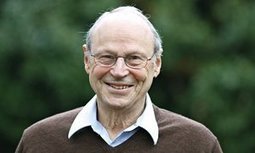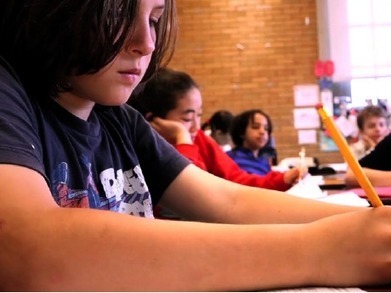Teachers should embrace a radical pedagogy and provoke students to demand equality for themselves and others, argues vice principal Tait Coles
Schools must develop a commitment to civic courage and social responsibility that ignites bravery in young people to realise they have the power and opportunity to challenge the status quo. School leaders have a duty to promote learning that encourage students to question rather than forcing teachers to lead drill-oriented, stimulus-and-response methodologies. Teachers must awaken the passions of their students and teach the knowledge and skills needed to direct and sustain it.
Students need the freedom and encouragement to determine and discover who they are and to understand that the system shouldn't define them – but rather give them the skills, knowledge and beliefs to understand that they can set the agenda. Educators must be prepared to embrace a radical pedagogy and believe that each school should be one of freedom that provokes students to fight against the corridors of power and enforce equality for themselves and others.
Critical pedagogy is the only way to achieve this. The philosophy was first described by Paulo Freire and has since been developed by the likes of Henry Giroux, Peter McLaren and Roger Simon. Critical pedagogy isn't a prescriptive set of practices – it's a continuous moral project that enables young people to develop a social awareness of freedom. This pedagogy connects classroom learning with the experiences, histories and resources that every student brings to their school. It allows students to understand that with knowledge comes power; the power that can enable young people to do something differently in their moment in time and take positive and constructive action.
Learn more / En savoir plus / Mehr erfahren:
http://www.scoop.it/t/21st-century-learning-and-teaching/?tag=Radical+Pedagogy
Via Nik Peachey



 Your new post is loading...
Your new post is loading...












Schools must develop a commitment to civic courage and social responsibility that ignites bravery in young people to realise they have the power and opportunity to challenge the status quo. School leaders have a duty to promote learning that encourage students to question rather than forcing teachers to lead drill-oriented, stimulus-and-response methodologies. Teachers must awaken the passions of their students and teach the knowledge and skills needed to direct and sustain it.
Students need the freedom and encouragement to determine and discover who they are and to understand that the system shouldn't define them – but rather give them the skills, knowledge and beliefs to understand that they can set the agenda. Educators must be prepared to embrace a radical pedagogy and believe that each school should be one of freedom that provokes students to fight against the corridors of power and enforce equality for themselves and others.
Critical pedagogy is the only way to achieve this. The philosophy was first described by Paulo Freire and has since been developed by the likes of Henry Giroux, Peter McLaren and Roger Simon. Critical pedagogy isn't a prescriptive set of practices – it's a continuous moral project that enables young people to develop a social awareness of freedom. This pedagogy connects classroom learning with the experiences, histories and resources that every student brings to their school. It allows students to understand that with knowledge comes power; the power that can enable young people to do something differently in their moment in time and take positive and constructive action.
Learn more / En savoir plus / Mehr erfahren:
http://www.scoop.it/t/21st-century-learning-and-teaching/?tag=Radical+Pedagogy